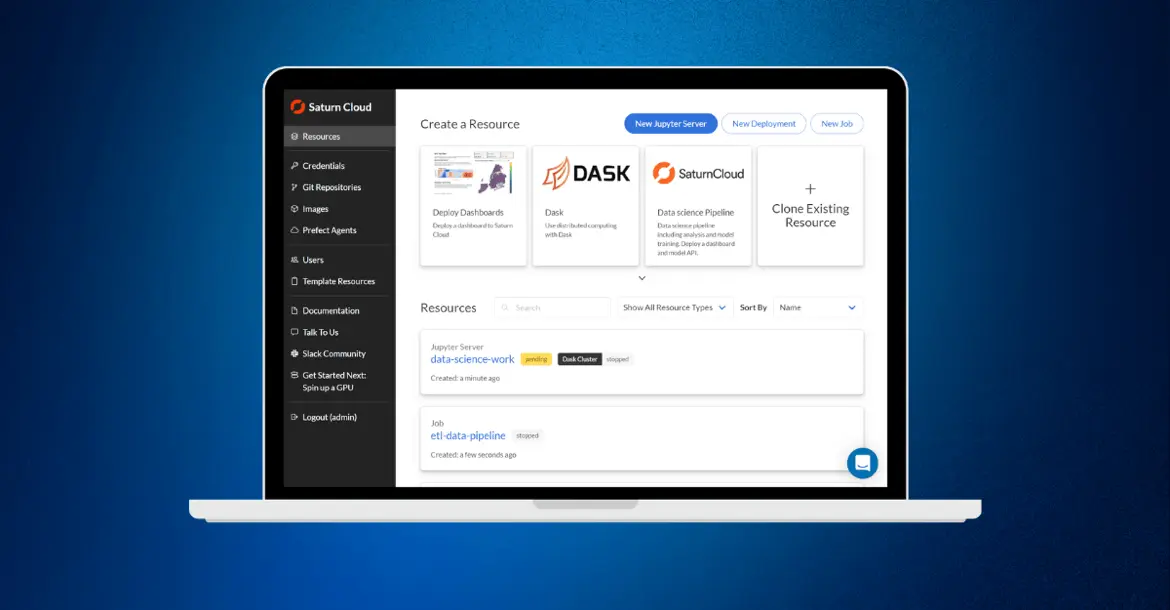Data Science Platforms
Defining a Data Science Platform
A data science platform is a software product which supports data scientists by enabling them to do all sorts of data science tasks in one centralized location. Data science platforms take care of tools, infrastructure issues, environment for models, deployment code, scheduling and more so that data scientists can focus on other things. A data scientist whose main job is to make analyses and models does not have to switch between multiple tools or worry about DevOps or backend engineering.
Features of Data Science Platforms
Accessible Computing Environments
Data scientists get access to prebuilt computation environments - high memory notebooks, GPUs etc, each connected to hardware in the back-end and ready to use.
Deploy Dashboards and APIs
Data scientists get access to prebuilt computation With their built in tools, data science platforms make it easy for you to turn your results from Jupyter notebooks to Dashboards or REST APIs.
Schedule Tasks and Pipelines
You do not need to rely on an engineer to setup or run recurring tasks. Data science platforms provide you with built in tools to easily create and run you jobs.
Control Access to Resources
Administative tools allow data science managers to restrict access resources or hardware types, manage cost, and oversee the system.
Collaborate with Coworkers
When working as a team data scientists can easily share their work. This avoids situations where code can't run for other teammates, code become stale, and other critical issues.
Integrate with Other Tools
A data science platform often has built in capabilities to connect to data services, version control tools, and other technologies to improve your work.
Differences between Data Science Platforms and Machine Learning Platforms

Machine learning platforms are software products that help machine learning engineers in building and delivering machine learning lifecycle. Machine learning platforms are different from data science platforms in that they focus less on creating a space for data scientists to easily create analyses and models then share with coworkers, but instead focus more on the model deployment pipeline. To put it directly, data science platforms are for enabling data scientists with their work, while machine learning platforms are more for helping machine learning engineers with their work. Since the two roles often have a heavy overlap in what they do, data science platforms and machine learning platforms often have overlapping features. By understanding the needs of the users of the tool, an organization can choose the right platform to use.
| Machine Learning Platform | Data Science Platform | |
|---|---|---|
| Objective | Create accurate and high performing models. | Create infrastructure to support data science teams. |
| Usability | Less human errors in creating ML pipeline. Support in hyperparameter tuning and monitoring your models | Easy access to GPUs, more number of machines, software packages and infrastructure support in data science work. |
| Features | Automation and built in tools for data cleaning, feature engineering, choosing model, model building, analyzing results etc. | Notebooks support of various packages, scalability, job scheduling, easy Deployment, software package integration etc. |
| Users | Machine learning teams. AutoML ensures that someone who is not expert in Machine learning/coding can also use ML platform for AI solutions. | Data Scientists, Data Science Managers and Software engineers. |
Saturn Cloud is a great data science platform
Data Scientists
Saturn Cloud gives you access to resources like high memory machines, GPUs, and distributed Dask clusters.
Data Science Leaders
Easily manage your team with administrative tools, secure credentials, and usage reporting.
Software Engineers & DevOps
Support your data scientists with a robust infrastructure that runs on your AWS account.
